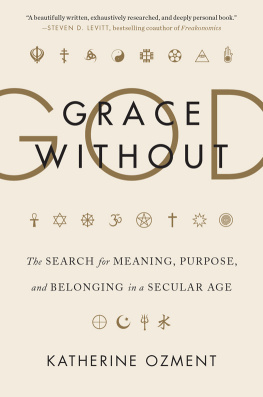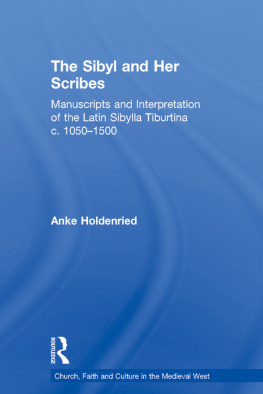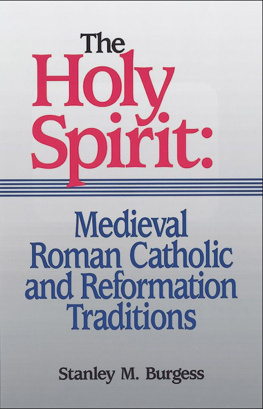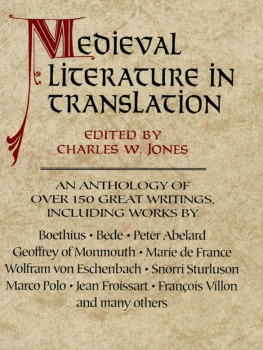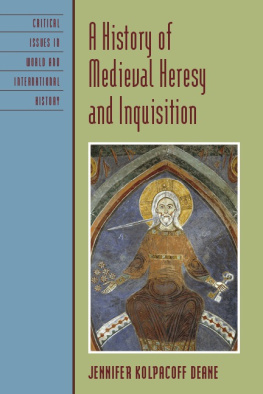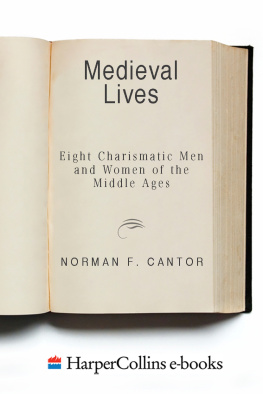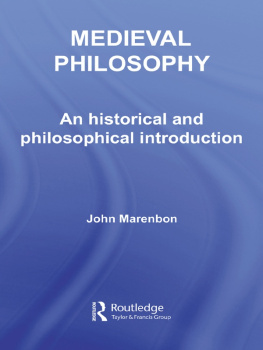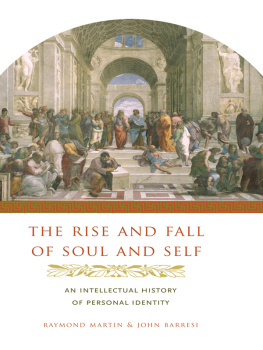CHAPTER 1
The Interpretation of Medieval Intellectual History
MANY scholars feel that the intellectual history of the Middle Ages reflects the peaks and valleys of its political and social history. There is nothing particularly artificial about this view; rises and declines in thought and culture are often directly connected with larger historical fortunes. The close relationship between prosperity, patronage, education, and the arts, for example, is a well-known feature of the Renaissance. But sometimes the relationship between the intellectual history of a period and its larger political and social history is more subtle, and reading the former in light of the latter can be misleading.
The relationship seems most straightforward in the early Middle Ages (476-ca. 1000). Medieval history began with the political collapse of a civilization: the fall of the Roman Empire after a century of military factions, recurring disease and famine, and sheer impoverishment, all of which left western Europe powerless before invading barbarian tribes. In 476, the traditional date for the fall of the empire, Romulus Augustulus, the last western emperor, was deposed, and a barbarian chieftain assumed his place. Thereafter Western civilization entered a period of steep cultural decline, described by Renaissance thinkers, with some exaggeration, as the dark middle age between classical antiquity and the reborn civilization of the fourteenth and fifteenth centuries.
During the early Middle Ages, Goths, Vandals, Burgundians, and Franks dominated western Europe, while the Arabs controlled the Mediterranean. Although the Mediterranean did not become the Moslem lake Henri Pirenne once depicted, Western trade and commerce with the Levant fell off significantly, much to the material and cultural detriment of the West. The great cities of the old Roman Empire declined as populations migrated to interior regions. Western people were effectively cut off from both ancient and contemporary sources of learning and science and forced to fall back on native resources. Experimentation with new political and social forms began.
Sheer physical survival preoccupied most people in the early Middle Ages. As large numbers populated the countryside, there evolved that peculiar fusion of Germanic, Roman, and Christian practices that we speak of today as feudal society. To an unusual degree, the most important figures in the early Middle Ages were farmers and soldiers. The task of preserving basic social structures was paramount, and little time and treasure could be given over to the higher goals of civilization; supplying the basic physical needs of life allowed little beyond a rudimentary development of education and culture. Between 875 and 950, Western society seemed on the verge of total collapse when the Carolingian empire, already weakened by physical partition among Charlemagnes contending grandchildren, was assailed by new invasions of Vikings, Magyars, and Saracens. If the characterization dark age may be justifiably applied to any time in the Middle Ages, it would be this seventy-five-year period in the late ninth and tenth centuries.
What of the intellectual history of the period? Like the larger political and social history, it too was characterized by experimentation and preservation. In the century of Romes fall lived the single most influential thinker in the Western intellectual traditionSaint Augustine (354430). Augustine was to the intellectual history of the Middle Ages what classical civilization was to its political and cultural history: a creative source, whose recovery and study spurred new directions of thought and controversy down through the Reformation of the sixteenth century. After Augustine there were no giants of Western intellectual history until Anselm of Canterbury in the eleventh century. During this intervening intellectual dark age only a few significant thinkers were active, and their importance lay primarily in their role as translators and commentators, that is, as men who preserved and transmitted a few of the writings and teachings of ancient masters.
One of the most important of these custodians of antiquity was Boethius (ca. 480525), an eminent member of the Roman senatorial aristocracy and chief minister to the Ostrogoth king Theodoric. Although best known for his Consolation of Philosophy, a Stoic work written in prison while he awaited execution on charges of treason, Boethius is far more important as the major source before the thirteenth century of Western knowledge of Aristotle. He made Latin translations of Aristotles basic works on logic, the Categories and On Interpretation, and wrote commentaries on them; in addition, he translated Porphyrys Isagoge, an introduction to Aristotles Categories, and his commentaries on Aristotle. These became the only works by and about Aristotle known in the West until the full recovery of his logical, physical, and metaphysical writings in the twelfth and thirteenth century. An admittedly modest collection, Boethiuss translations and commentaries were still sufficient to give birth to scholastic method in the twelfth century. He also translated works of Euclid and Ptolemy into Latin, together with other classical tracts on arithmetic and music that became mainstays of the monastic and urban cathedral schools, the first formal Western educational institutions.
What Boethius was to the Aristotelian tradition, Dionysius the Areopagite and John Scotus Erigena, together with Augustine, were to the Platonic and Neoplatonic traditions. To enhance the importance of his work Dionysius pretended to be the biblical disciple of St. Paul possessed of a secret knowledge of God. He was actually an early sixth-century figure. He is most famous for his mystical theology, which contrasts affirmative and negative ways to God and found a wide audience among scholastics in the high and later Middle Ages. Erigena (ca. 81077) directed the waning Carolingian palace school in the mid-ninth century. An authority on the Greek church fathers, he translated the writings of Dionysius from Greek into Latin, making them available to scholastic philosophers and theologians, and was in addition an original thinker in his own right.
The Carolingian renaissance of the late eighth and early ninth centuries was a true shaft of light within the relative cultural darkness of the early Middle Ages. Charlemagne accumulated a great deal of wealth from the tribes he conquered, and a substantial portion was used to attract Europes best clerical scholars to the imperial palace at Aachen. While Charlemagne appreciated learning for its own sake, he created the palace school in order to upgrade the administrative skills of the clerics and noblemen who staffed the fledgling royal bureaucracy. The school was under the direction of the Anglo-Saxon master Alcuin of York (ca. 735804), an imported scholar attracted by promises of land and power. The palace school in Aachen provided basic instruction in the seven liberal arts, with special concentration on grammar, logic, and mathematics, that is, on training in reading, writing, speaking, and sound reasoning, the basic tools of government. By preparing the sons of noblemen to run the religious and secular offices of the realm, court scholarship directly served Carolingian kingdom building. Here we see how Western intellectual and religious history developed in tandem with Western political expansion.
If experimentation and preservation characterized the early Middle Ages, self-discovery and definition marked the high Middle Ages (10001300). In this period Western people began to assert their identity as they came to know and impose themselves on others. Two larger developments made this possible. The first was the revival of trade and towns in the eleventh century, which provided new resources for the higher tasks of civilization. The second was the emperor Otto Is defeat of the Hungarians at Lechfeld in 955, a victory that secured Western borders against foreign invasion from the East and made possible a long-absent internal political stability.


